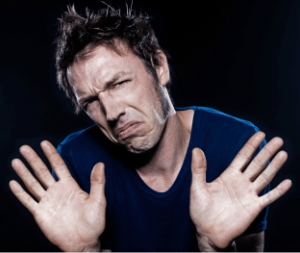 “We must reject the idea that every time a law’s broken, society is guilty rather than the lawbreaker. It is time to restore the American precept that each individual is accountable for his actions.” Ronald Reagan
“We must reject the idea that every time a law’s broken, society is guilty rather than the lawbreaker. It is time to restore the American precept that each individual is accountable for his actions.” Ronald Reagan
As the moral and spiritual fabric of American culture continues to unravel, one time-honored norm after another is being jettisoned from daily living. One of those traditional values has been the importance of taking responsibility for one’s own decisions and actions.
For several decades now, this approach to life has suffered serious erosion. A prominent feature of current culture is to look for someone else to blame for those unpleasant things that happen in one’s life. Coupled with this evasion of personal responsibility is the desire to get rich quick by suing anyone and everyone who might be even remotely connected to the circumstance. Consequently, a driver can spill coffee on herself after passing through a fast food drive-up window, sue the restaurant and win! One can choose to smoke cigarettes for years, sue the cigarette manufacturers, and extract large sums of money. One even can eat hamburgers and French fries from fast food chains—and then turn around and blame the restaurant for gained weight and high cholesterol levels.
Don’t misunderstand – Genuine negligence takes place in our society in which those who promote services to the public fail to give adequate attention to dangerous aspects of their products. However, much litigation in America today is unjust, outrageous, and deplorable. Frivolous law suits have led to millions of dollars spent on superfluous warning labels that cheapen the significance of truly necessary ones. Since “accidents happen” through the ordinary circumstances of human existence without anyone really to blame, innocent people are being victimized, singled out to bear the brunt of reckless vengeance, undeserved retaliation, and greed.
The attempt to shift blame to others has been a perennial propensity on the part of many people even though God has always insisted upon the necessity of a person accepting responsibility for his or her own thoughts, decisions, and actions. This insistence is seen, for example, in the oft’-repeated phrases, “his blood shall be upon him” (Leviticus 20:9,13,27; Deuteronomy 19:10; Ezekiel 18:13; 33:5), and “his blood be on his own head” (Joshua 2:19; 2 Samuel 1:16; Ezekiel 33:4; Acts 18:6). It also is seen in the declarations that “the soul who sins shall die” (Ezekiel 18:4,20), and “the son shall not bear the guilt of the father, nor the father bear the guilt of the son” (Ezekiel 18:20; Deuteronomy 24:16). Yet, when we ourselves get caught for our own bad behavior, too often we become resentful and angry and want someone else to pay.
But there are consequences to our actions. God is keeping a record, and one day will call all of us to account (Matthew 12:36; Romans 14:12). He assigns responsibility for our own actions to us, and no one else. When we make choices that bring hardship or hurt into our lives, we must be willing to humble ourselves and bear the consequences.
If we do not want to endure that pain, we should not commit the acts that elicit such a result. If we do commit such acts, we have earned the resultant suffering, and we deserve to get what we have earned. We need to be adult enough to “take our licks.” Even when hardship comes due to the nature of human existence and the world around us, with no particular individual responsible, we should humbly bow and commit ourselves to “Him who judges justly” (1 Peter 2:23).
America would be a much better place in which to live if we returned to an observance of the simple precepts of Scripture: ll of you be of one mind, having compassion for one another; love as brothers, be tenderhearted, be courteous; not returning evil for evil or reviling for reviling, but on the contrary blessing, knowing that you were called to this, that you may inherit a blessing” (1 Peter 3:8-9).
“The victim mindset dilutes the human potential. By not accepting personal responsibility for our circumstances, we greatly reduce our power to change them.” Steve Maraboli, Unapologetically You: Reflections on Life and the Human Experience
Source: Personal Responsibility, By Dave Miller, Ph.D.,

